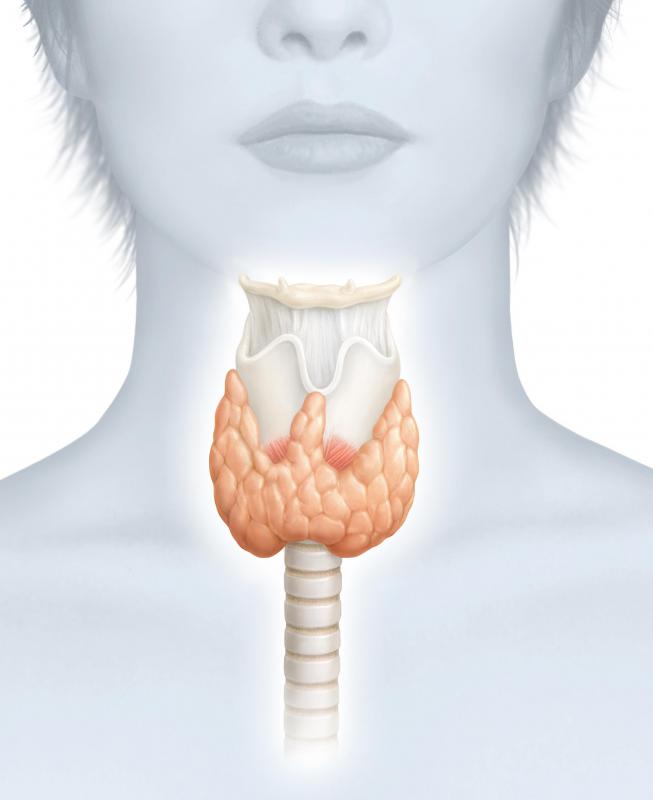At TheHealthBoard, we're committed to delivering accurate, trustworthy information. Our expert-authored content is rigorously fact-checked and sourced from credible authorities. Discover how we uphold the highest standards in providing you with reliable knowledge.
What Is a Nuclear Medicine Thyroid Scan?
A nuclear medicine thyroid scan is a diagnostic tool used to determine a patient's thyroid function. The test is necessary to detect a number of conditions, including hyperthyroidism, goiter and thyroid cancer. The test requires a patient to ingest a small amount of radioactive iodine many hours before testing. The procedure only takes minutes and causes little to no discomfort to the patient.
If a patient presents with symptoms indicative of a thyroid disorder, a physician must determine whether the cause is benign or harmful. A nuclear medicine thyroid scan is necessary to diagnose the specific disorder. Unlike other forms of medical imaging, such as MRI or PET scans, nuclear medicine scans have the advantage of showing metabolic function in real time. For a nuclear medicine thyroid scan, the scan measures the rate at which the thyroid absorbs iodine.

Hours before the scan, the patient takes a pill containing a small amount of radioactive iodine, a tracer that the scan detects. The body, unable to distinguish the tracer from normal iodine, sends it to the thyroid to be processed into thyroid hormones. Only when this process is under way can the test accurately measure thyroid function.
The first scan takes place roughly four to six hours after the patient ingests the radioactive iodine. He or she lies on a table, the imaging scanner positioned directly above his or her neck. Taking just a few minutes, the scanner records the radioactivity emitted by the iodine tracer that has traveled to the thyroid. In a healthy adult, the scanner produces an image of the thyroid as shaded areas against a white background. Even shading indicates normal iodine intake.

No matter the result of the first test, a second is usually performed 18 hours later. Comparing the two images to each other gives physicians a detailed view on thyroid function. If the thyroid in the first image is especially dark, it is an indication of hyperthyroidism; the thyroid is overactive. An unusually light image occurs due to hypothyroidism. An enlarged or misshapen thyroid suggests the presence of a tumor or goiter.

If a physician discovers abnormalities in the results of a nuclear medicine thyroid scan, other diagnostic tools are necessary to make a final diagnosis. For example, a tumor and goiter can create a similar image on a scan. In these cases, a surgeon performs a biopsy to determine the nature of the mass.
AS FEATURED ON:
AS FEATURED ON:













Discuss this Article
Post your comments